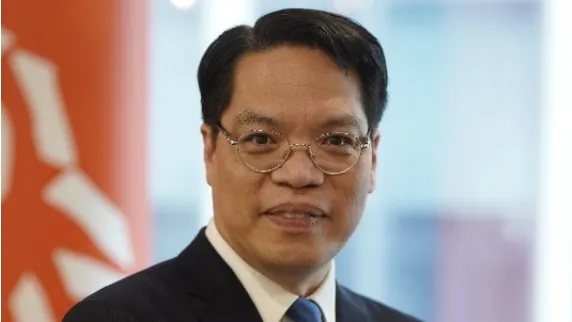
More tax perks could drive Philippine SMEs to go ‘green’
The Southeast Asian nation’s 1.1 million small businesses can be a target for green loans.
The Philippines should offer more incentives to small businesses, which make up 99.6% of all companies, to spur them to become more environmentally sustainable, according to ING Philippines’ country head.
“I think more than the stick, it's the carrot that will be more helpful, at least at this early stage,” Jun Palanca, managing director and Philippine country head for ING, told Asian Banking & Finance in an interview.
Giving them more tax perks would help them transition to clean energy and other sustainable practices, he pointed out.
The Philippine central bank in 2023 lowered the reserve requirements for loans to sustainable projects and green bonds. Small and medium enterprises (SME) need the same level of support from the corporate regulator, Palanca said.
A 2023 McKinsey & Co. study of publicly listed companies found that those that outperformed on profit, growth and environmental, social and governance (ESG) principles saw greater revenue increases than companies that only outperformed on profit and growth.
There are numerous incentives for SMEs and mid-sized enterprises to embed sustainability into their corporate vision and industrial operations, according to the World Economic Forum, noting that environmental sustainability and business performance can grow hand in hand.
“By adopting sustainable practices, SMEs and mid-sized companies cannot only reduce environmental impact but also enhance operational efficiency, cut costs, attract talent and unlock new growth opportunities,” it said.
At more than 1.1 million, micro, small, and medium enterprises in the Southeast Asian nation can be an important target for green financing. In contrast, there were only about 4,500 big corporations in the Philippines, according to 2022 data from the Department of Trade and Industry (DTI).
ING recently tripled its global renewable power financing commitment to €7.5b annually by 2025, and is seeking to mobilise €150b annually by 2027 toward financing sustainable business practices.
This year, the Dutch banking group expects to hit its target of €4.4b in renewable financing. It has also stopped new general financing for “pure-play upstream oil and gas companies” involved in new field developments, effective September 2024.
The Philippine banking industry has been actively financing sustainable activities, but “it’s never enough,” Palanca said. “There’s a lot more that can and should be done,” he added, noting that lenders need to be more transparent and educate their clients about the wisdom of going green.
“We all need to be collaborating more too, in terms of innovating, helping our clients, and creating products that will be more helpful to them,” he added.
Moving away from oil and gas remains a challenge amidst questions about energy security and high power costs.
Under its transition plan, the Philippines is expected to still rely heavily on fuel for its energy needs. The 2030-2050 Philippine Energy Plan only expects 35% of energy to come from renewable sources by 2030, and just 50% by 2040.
‘Not as clear yet’
“You can suddenly say, ‘OK, let’s shut down all the coal-fired power plants,’ but then you’ll have blackouts all over,” Palanca said. The transition to clean energy costs a lot, even for big corporations, he added.
“Moving from being a pure coal-fired company to renewable energy is a big investment,” he said. “So we need to be thinking about how to support that transition, or even to expedite it to an extent.”
ING Philippines has worked as a sustainability coordinator for sustainable bonds, including one for Arthaland Corp., which puts up buildings powered by renewable sources. It also lends to smaller financial institutions that finance small firms.
This ensures that SMEs, the agriculture sector, women and other entrepreneurs get the funding support, Palanca said, adding that ING also provides advisory services to its clients.
Palanca cited an example in Turkey, where they provided financing to a local bank that in turn financed SMEs led by women entrepreneurs and small farmers. In the Philippines, ING financed a company’s COVID-19 relief program at the height of the pandemic, allowing it to expand its hospital facilities instead of retrenching staff, he added.
Filipinos still need to be educated about how sustainable practices can benefit them, Palanca said, even if floods and other natural calamities have become a part of their everyday life.
“That one is not as clear yet,” he said, adding that on the corporate side, there is more awareness about the need for sustainable finance. “I think many are putting together regulations to help incentivize various banks and corporations to move toward sustainable practices.”

















 Advertise
Advertise













